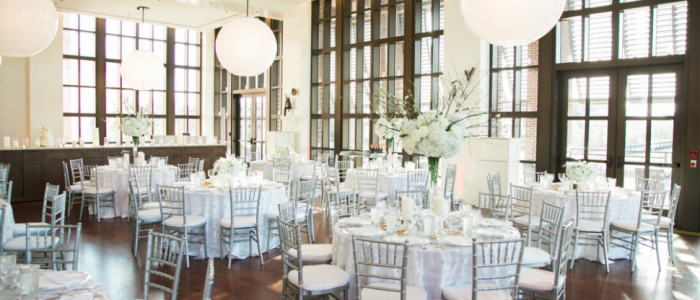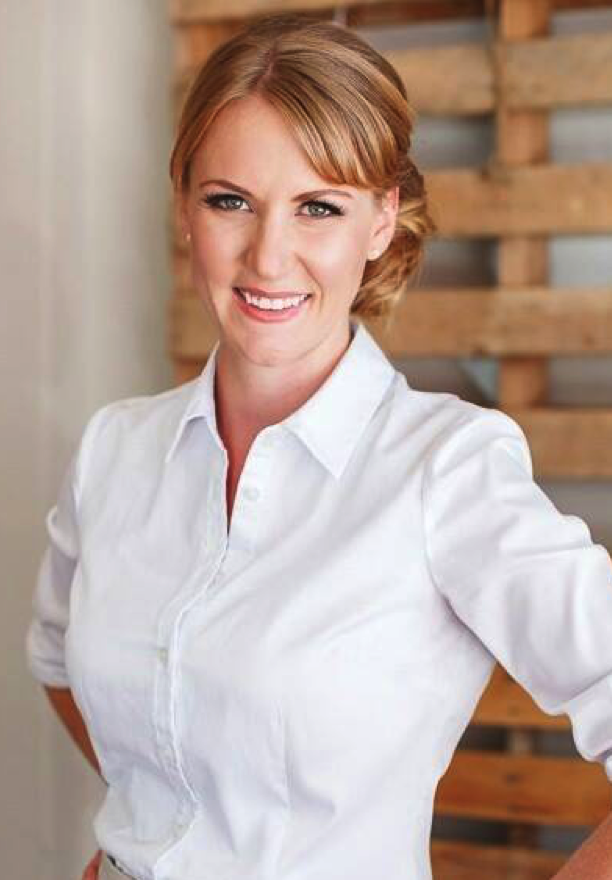
7 Ways Great Wedding Planners Impress Venue Teams
This piece is brought to you by Sarabeth Quattlebaum of Sarabeth Events. Sarabeth is a Certified Master Wedding Planner (CMWP) at AACWP, and she has taken this time to share her thoughts on wedding planning practices from the perspective of an event venue professional. We hope you enjoy her ideas!
AACWP is committed to continuous education for wedding planners. This is an editorial piece that provides one perspective on how wedding planners may better serve their clients and vendors. There are many ways to approach doing business as a wedding planner and we invite our members to think critically about their processes. The views expressed in this blog post belong to Sarabeth Quattlebaum, and do not necessarily reflect the views of the AACWP.
Hey, wedding planner! You’re organized, you do a great job educating your clients, and you create gorgeous events that bring venues to life. Surely, you make life easier for the catering managers and venue coordinators you work with, right? You are probably thinking, “Yes, of course!” However, you might be surprised to know that some catering managers and venue coordinators may actually say that some planners make things more difficult. Shocked? I was, too!
I have walked in your shoes as a planner. Before becoming a Catering Manager at a local Dallas venue, I was honored to lead many vendor teams to victory on numerous wedding days as an AACWP Certified Master Wedding Planner (CMWP).
Like many catering managers and venue coordinators, I sing the “planner hymnal” to every couple who will listen. I even require a wedding planner on the day of the event to ensure smooth execution, and I rest much easier knowing it is someone that is certified and educated. That said, when we really get down to working together, there is a careful dance; one that I have loved learning and want to share with you to help improve your relationships with venue professionals.
Every Catering Manager, Wedding Specialist, or Director of Catering varies in his or her method of work, but here are 7 solid ways that great planners ensure venues are excited to work with them:
- They eliminate “walk-ins.”
Great planners urge their clients (and vendors, believe it or not!) to pre-schedule visit times at venues. Just as planners schedule their days, so too do venue and catering professionals plan ours. Our venue is our home, and when clients or planners drop in unexpectedly, we feel terrible when we can’t drop everything to welcome them. Even worse, we may be in a meeting with another planner or bride who deserves our full attention.Where I work, pre-scheduling is also a matter of security (I work at a Federal property). If you want our best foot forward, request an appointment, and encourage your clients to do the same! While we’re honored that our couples want to show off the venue to family and friends, please advise them not to drop in unexpectedly, especially on a Saturday. Other weddings could require us to ask the client to leave, which is never the kind of service we want to give!
- They are thoughtful about proposal and contract requests.
The cliché saying, “time is money,” is never as true as with Catering Managers working on a proposal or contract. Proposals take time and thought, and are the largest time-consumers of our day because we want to send you something spectacular and comprehensive. If your client is not truly interested in a property, please do not request a proposal. If we are not the perfect property, just let us know!Beyond the initial proposal phase, here’s a little known fact: at some venues, it may be detrimental for a planner to ask for a contract if the client doesn’t intend to book the property. For instance, in our systems, when we go to contract it changes the status of the event (which our upper management sees) and prevents other sales people from being able to sell that date. When your client doesn’t book, it may reflect poorly on the venue coordinator’s performance and may also cause us to lose other business. We understand some contracts may not work out, but if you try to request contract requests only for clients who are serious about the property, you will experience better relationships with venue professionals!
- They send one organized email per day.
As a Catering Manager, I want to make sure every single little detail makes it to our “Holy Grail”: the Event Order (or “Banquet Event Order”/BEO) to share with my team. It’s difficult to do a great job of this if I’m sent 10 emails in one day with 10 different small changes. Venue professionals will love you if you compile changes and client requests in one large email per day, rather than sending or forwarding multiple emails. If you can consolidate the high volume of communication, our shared clients will get much better service.Start by referencing the wedding date and client name in the subject line of the email, and then explain the client updates in the body of the email in a numbered list. However long the list may go, this format will ensure your venue or catering professional can dedicate time to your client efficiently and respond with finalized information.
- They consolidate visits.
I believe now, as I believed as a CMWP, the ideal number of venue meetings is three:
First Meeting: Initial site visit
Second Meeting: Tackle décor, design, floor plan, and any vendors who need to see the site (yes, this can all be done successfully in one meeting!)
Third Meeting: Do tasting and wrap up all final details
I have seen planners successfully achieve all of this in two meetings! Just as it’s a best practice to limit emails, condensing the number of visits will result in better efficiency for the team (including you, the wedding planner!) and the client.
- They plan ahead for the EO/BEO.
Once you have marked the timeline “final” and your client has signed off on the BEO, it’s very important to avoid additional changes. We often distribute final documents to our teams days or weeks in advance so that culinary and operations can staff and place their orders. Conveying last-minute changes to the venue teams is difficult and increases the chance of mistakes in service, which is never the goal!
- They educate clients about tastings.
Tasting practices vary widely among caterers, so don’t assume anything! Ask your venue or catering contact for guidelines first, then guide your client to prepare for the tasting. It helps us greatly if you explain that tasting basic cuisine like quesadillas or a mixed green salad is not the best use of the tasting (and some chefs will not offer items like this to taste).
Rather, effective tastings focus on unusual items and/or the main entrée. Please ensure the clients don’t expect to taste everything that is being featured on a station or buffet-style menu, and educate them to understand that the presentation of some items at a tasting will vary from the way they will be plated or served at the event. If the tasting is also the final meeting, come prepared with the final timeline and vendor list so that everyone walks away confident in the wedding plans.
- They communicate their role in the wedding.
I love other professionals in our industry and we all know when we love to work together, it sure feels a lot less like work! Be up front with your Catering Manager about your roles and responsibilities. I address this (quietly) in the beginning with a planner on property; “What level of service are you providing this client?” This allows me to discuss how we will work together and divide planning coordination duties. Feel free to say, “I am only a month-of coordinator for this couple.” This will let us know that you will have limited communication during the planning process, but should be brought back in for the final meeting and will handle communication with vendors after that point.
In closing, please know that I speak for many Catering Manager and Venue coordinators when I say we are always happy to see an AACWP member at our door! Each property you work at is different, so keep in mind that you are a guest there. By following some of the tips above, you will ensure that the Catering Manager/Venue Coordinator will be excited to welcome you back time and time again!
Featured Image Photo Credit: Amy Karp Photography
 |
Sarabeth Quattlebaum, CMWP, has over 12 years of experience in the private event market in Dallas-Fort Worth. After graduating with a BBS in Entrepreneurship, Sarabeth founded Sarabeth Events, a boutique event planning firm located in Fort Worth. Currently employed at the George W. Bush Presidential Center, she has vast knowledge of catering and beverage services for her elite clientele.
Sarabeth has served on the Board of Directors for the American Association of Certified Wedding Planners and supports the National Association of Catering and Events organization though committee-chairs. Through her membership in AACWP, Sarabeth met all of the distinguished criteria to achieve Certified Master Wedding Planner status and is one of only seven CMWP’s. She is currently a member of AACWP & NACE, enjoys public speaking and attending national catering and event conferences. |

